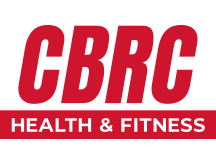BEING ACTIVE WITH THYROID DISEASE
If you have thyroid disease, your symptoms may have gotten in the way of a regular exercise program, but you should know that making exercise part of your daily routine can actually help you manage your symptoms better. Of course, there are a bunch of other health and wellness benefits too!
BENEFITS
- Increases your energy levels: If you have an underactive thyroid (hypothyroidism), you may often feel fatigued, but regular workouts will combat your tiredness.
- Supports deeper, better sleep: When your thyroid is producing too much hormone (hyperthyroidism), your sleep may be fragmented and you may have night sweats that wake you up, resulting in poorer sleep. Getting exercise often results in a good night’s sleep.
- Improves your mood: Depression is common with thyroid disorders, especially hypothyroidism. Exercise gets your endorphins (“feel good” hormones) moving and makes you feel good.
- Increases your bone density: Bone loss can occur with hyperthyroidism, but studies show that strength training can help you get some of that loss back.
- Boosts your metabolism: When you have hypothyroidism, your metabolism takes a nosedive, causing you to gain weight, which is likely one of the first symptoms you noticed. Exercising can be another tool, along with your thyroid medication, to help support a healthy metabolism by burning calories and developing muscle, which in turn burns fat.

Exercise even lowers your risk for heart disease, which is important since having a thyroid disorder automatically increases your risk of developing a heart condition at some point.
EXERCISE AND WEIGHT LOSS
If you’re dealing with an underactive thyroid (hypothyroidism), you may also be carrying some extra weight, a common outcome when your thyroid hormone levels are low. Exercising regularly can help you get back in shape and drop those extra pounds, as well as maintain a healthy weight.
Even better for your weight loss goals, as well as your thyroid symptoms, you can combine a healthy meal plan with your exercise plan. While there’s no special diet when you have thyroid disease, if you’re trying to lose weight, sticking within certain calorie limits can help you achieve your goals.
TYPES OF PHYSICAL ACTIVITY
No or Low Impact: If you haven’t exercised in a long time, you may want to take it slow, choosing no- or low-impact exercises to start with in order to let your body gradually adjust.
– Walking – Strength Training – Bike Riding – Yoga – Tai Chi – Water Aerobics/Swimming
High Impact: Stretch your muscles 2-3 days/week to the point of feeling tightness. Hold for 10-30 seconds (30- 60 seconds for older adults). For example, stretch your calves or the back of your thighs.
– Jump Rope – Jogging/Running – High-Intensity Interval Training – Stair Climbing – Hill Hiking/Climbing
Strength training is particularly important when you have an underactive thyroid because muscle mass will help your slowed-down metabolism burn more calories. Make sure you’re getting enough protein to help you build that all-important muscle too.
PRECAUTIONS
- If your thyroid condition isn’t well-controlled or hasn’t yet been diagnosed, exercise can be dangerous for you. An overactive thyroid (hyperthyroidism) produces excess thyroid hormones, which significantly increases your metabolism and heart rate. If your thyroid hormones aren’t being controlled, too much exercise, especially at a high intensity, can cause you to go into heart failure.
- Conversely, an underactive thyroid (hypothyroidism) doesn’t produce enough thyroid hormones, slowing down your metabolism and your heart rate. Because of this, exercise can be hard on your heart if your thyroid hormones aren’t well-controlled.
- It’s important to talk to your healthcare provider if your thyroid symptoms aren’t improving or getting worse, or if you think you have the symptoms of a thyroid disorder, especially before you start any sort of new exercise program.
- Once your thyroid symptoms are under control and your hormone levels are normal, incorporating exercise into your routine is not only safe, it’s encouraged, so you can start reaping all the benefits that getting active has for your thyroid and your overall health.
MOVEMENT HEALTH & MOVEMENT FUNCTION
Our Exercise Professionals believe that exercise is medicine and are eager to assist! To get started today call (509) 943-8416 or email [email protected].
*American Thyroid Association. Thyroid and Weight.
*Cleveland Clinic. Uncontrolled Thyroid: Exercise, Diet Risks.
